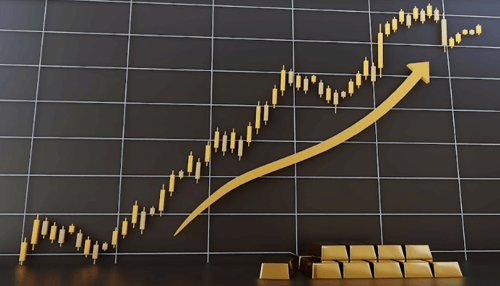Gold trading is one of the most complicated commodities tradings today due to its uniqueness. But gold is a precious commodity today because most countries use it as a reserve currency. If you hire commodity trading companies, your portfolio may benefit in several ways.
If you’re considering trading gold, these tips are outlined to properly utilize gold and maximize profit potential.
1. Target Prior Highs and Lows for Analysis
The simplest strategy is to look for buy or sell chances within past highs and lows. Traders can buy gold while it’s heading up and sell it at a previous high, or vice versa.
Gold, being a very stable asset, is likely to return to previous highs or lows. This isn’t a suitable day trading strategy since hitting these targets takes time. Also, range-bound methods don’t give immediate profit opportunities like momentum strategies.
You could check oxford gold group and other websites for the best and pricing service if you decide to buy gold now.
2. Keep Track On Central Bank Buying
When some currencies are expected to be volatile, central banks acquire gold as a hedge. Russia and China made headlines for investing heavily in gold, thus possibly showing their worries over the future price of dollar and other major world currencies.
If central banks start buying gold in bulk, it’s usually a sign for currency traders to take actions. First, governments expect major currency prices to fall, encouraging traders to put more investment into less unstable assets. The second reason is that the rise of central bank buying usually leads to a growth in gold’s price. If the price of gold starts rising, it could be a good time to sell.
3. Monitor Real Interest Rates
Gold’s price rises as real interest rates fall and drops as interest rates rise. The real interest rate is calculated by subtracting the inflation rate from the nominal interest rate. Additionally, gold prices historically increase when the interest rates drop below 1%. If you’re seeking long-term trading opportunities, keeping an eye on this interest rate will help you find a good buying opportunity.
Therefore, always be in the know. As soon as gold information breaks, you should constantly have the latest news with you.
4. Find Gold’s Connections To Other Asset Classes.
Identify the relations between gold and other types of assets. Gold has a relationship with the major asset classes. For example, gold tends to rise during times of high uncertainty. It also rises when the dollar weakens and the US stock market falls.
Simply put, investors look for ways to profit from the stock as the market rises. They use gold to buy stocks. Moreover, when the dollar loses value, investors buy gold to reduce risk. Therefore, you should study these connections and how they work.
5. Observe Changes In Gold Production
Gold mining hasn’t changed much in recent years. It’s not always about weak gold demand owing to the obstacles of obtaining gold reserves in laborious regions. Moreover, today’s gold mining initiatives confront increasing costs.
The known gold reserves have been mined and included to the global supply. The remaining gold reserves require significantly more expensive mining procedures, thus reducing earnings possibilities.
But low production doesn’t mean gold is going to fall. In reality, it’s the opposite, stable gold production may increase worldwide demand and prices. This happens, especially if central banks and buyers of gold seek it out.
6. Develop a Strategy
After knowing the above trading tips, you should then establish a strategy. The strategy should help you buy, keep, or sell gold. Moreover, the strategy can be complex or basic.
You may choose between manual or automatic strategy. You will manually trade until your parameters are reached. When all conditions are met, you will open a trade. When the parameters are met, algorithms execute trades. Also, always back-test your strategies to confirm their accuracy.
7. Test Your Strategy
You must back-test your strategy to ensure it is accurate. While no strategy is accurate or risk-free, yours should be. Create as many models as you can and back-test the tool with them. This procedure should take a month or two. Create the scheme with only a few tools because the more methods you use, the more complicated it gets.
Why Trade Gold?
Buying and selling gold used to be difficult. Then came futures and options, enabling traders to speculate without actually owning the assets. Gold Exchange-Traded Funds (ETFs) made it even easier as if trading gold was like trading stocks. Trading gold today is like trading foreign exchange. Using a spread-betting platform, a retail investor simply buys or sells gold based on their expectations of price movement.
Trading gold appeals to some, merely because the underlying asset is physical rather than a bank account number. It also involves understanding fundamental factors impacting supply and demand, current gold trader positioning, technical analysis, and gold price chart. Even traders who focus solely on fundamentals believe a better gold trading approach includes elements of sentiment, fundamental, and technical research.
Conclusion:
Gold has been seen as a valuable asset that can be stored for generations without deterioration. To learn how to trade gold and generate similar gains, simply follow this basic gold trading technique guide.




